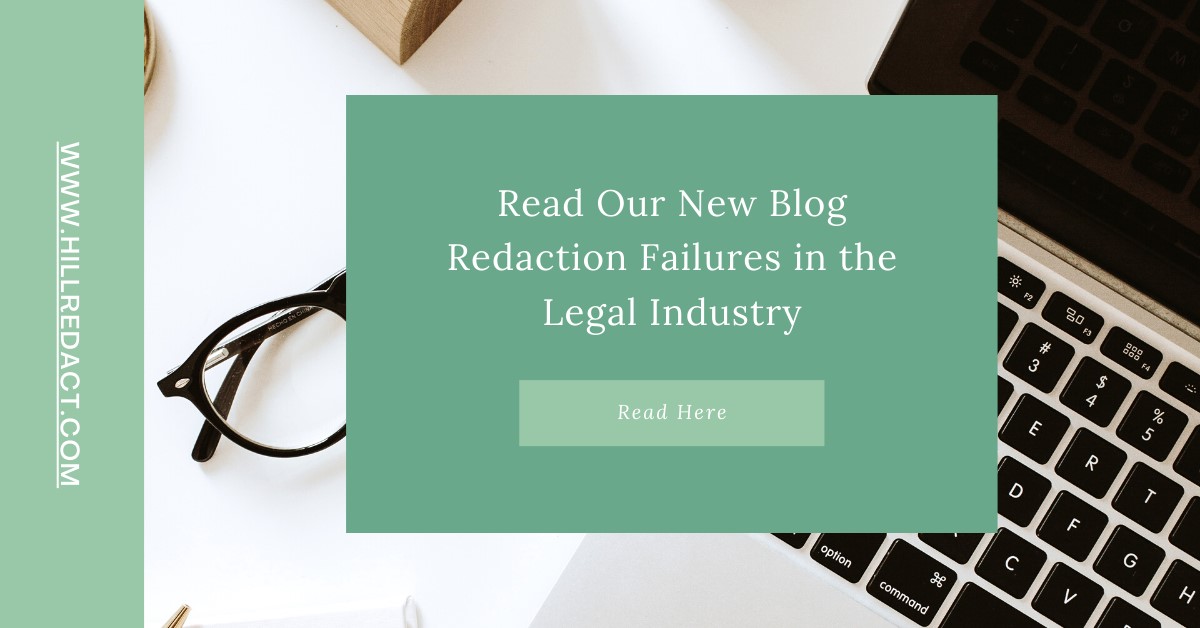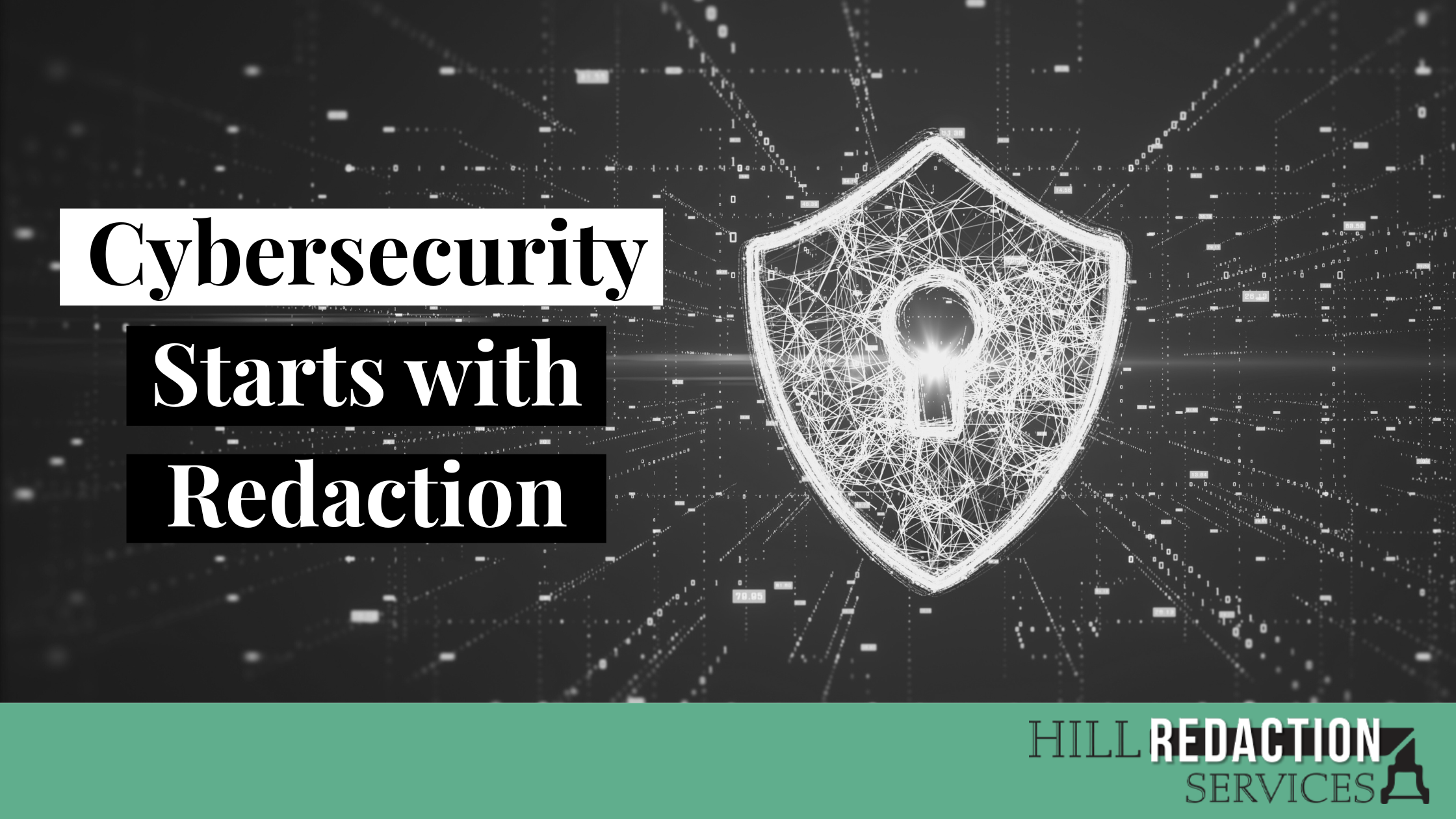
Redaction Failures in the Legal Industry: A Cautionary Litigation Tale
Redaction, the process of obscuring or removing sensitive information from a document prior to its public release, is an essential tool in the legal industry. Despite its importance, redaction failures have been a recurring issue, leading to embarrassment and serious legal implications. In the realm of disability and social security claim litigation, such mistakes can have grave consequences.
In this article, we’ll explore the risks of redaction failures in the legal industry and how proper redaction practices can prevent them.
Risks of Redaction Failures
Redaction failures can occur due to a variety of reasons, including human error and inadequate technology. In the context of disability and social security claim litigation, the stakes are high. Improper redaction could reveal private medical histories, financial details, and other personally identifiable information (PII). This exposure could jeopardize claimants’ privacy rights and potentially influence their cases’ outcomes.
Moreover, lawyers who fail to redact information properly could run afoul of the American Bar Association’s rules on safeguarding client information. This could result in disciplinary action, further damaging the reputation and credibility of the lawyers involved.
Notable Redaction Failures
While there aren’t many publicized cases of redaction failures in the disability and social security claim litigation, there have been some notable incidents in the broader legal industry. For example, in a high-profile case involving the United States v. Manafort, special counsel Robert Mueller’s office mistakenly revealed sensitive information about ongoing investigations due to inadequate redaction.
Another notable example was in a 2021 case in Canada, when the federal government made significant redaction errors in a Federal Court case, accidentally revealing sensitive data. The Canada Border Services Agency (CBSA) and Immigration, Refugees and Citizenship Canada (IRCC) were implicated in the oversight, as they used outdated methods to obscure the information, which became readable again upon conversion to PDF.
Preventing Redaction Failures: Tips and Best Practices
To avoid these pitfalls, it’s crucial to understand and implement proper redaction techniques. Here are some tips and best practices:
Double-check your work
This may seem obvious, but it’s worth stressing. Before releasing any document publicly, thoroughly review the redacted portions to ensure that they don’t contain any sensitive data.
Use Reliable Tools
Instead of trying to redact information yourself, use reliable and up-to-date redaction software manually or redaction services. This ensures a proper redaction process, leaving no room for human error. Additionally, these tools often come with advanced features such as pattern recognition and automated redaction that can save time and improve accuracy.
Consider Outsourcing Redactions
For high-profile cases or sensitive documents, it may be best to outsource the redaction process to a professional redaction service. These services have the expertise and technology to handle complex redactions while maintaining strict confidentiality.
Conclusion
In conclusion, redaction failures in the legal industry can have severe consequences, ranging from privacy breaches to disciplinary action. Lawyers must understand the risks involved in improper redaction and take necessary precautions to prevent such mistakes. By following proper redaction techniques and utilizing reliable tools or services, lawyers can ensure that sensitive information remains confidential and that they uphold their ethical obligations to safeguard client data.
As the adage goes, it’s better to be safe than sorry – especially in a profession that is built on trust and confidentiality. So, let’s make sure our redactions are done right every time. It could save us from costly mistakes and preserve the integrity of the legal system as a whole. After all, in the legal industry, there is no room for error when it comes to protecting sensitive information and upholding the rule of law.
Related Posts

Redaction Failures in the Legal Industry: A Cautionary Litigation Tale
Redaction, the process of obscuring or removing sensitive information from a document prior to its public release, is an essential tool in the legal industry. Despite its importance, redaction failures have been a recurring issue, leading to embarrassment and serious legal implications. In the realm of disability and social security claim litigation, such mistakes can have grave consequences.
In this article, we’ll explore the risks of redaction failures in the legal industry and how proper redaction practices can prevent them.
Risks of Redaction Failures
Redaction failures can occur due to a variety of reasons, including human error and inadequate technology. In the context of disability and social security claim litigation, the stakes are high. Improper redaction could reveal private medical histories, financial details, and other personally identifiable information (PII). This exposure could jeopardize claimants’ privacy rights and potentially influence their cases’ outcomes.
Moreover, lawyers who fail to redact information properly could run afoul of the American Bar Association’s rules on safeguarding client information. This could result in disciplinary action, further damaging the reputation and credibility of the lawyers involved.
Notable Redaction Failures
While there aren’t many publicized cases of redaction failures in the disability and social security claim litigation, there have been some notable incidents in the broader legal industry. For example, in a high-profile case involving the United States v. Manafort, special counsel Robert Mueller’s office mistakenly revealed sensitive information about ongoing investigations due to inadequate redaction.
Another notable example was in a 2021 case in Canada, when the federal government made significant redaction errors in a Federal Court case, accidentally revealing sensitive data. The Canada Border Services Agency (CBSA) and Immigration, Refugees and Citizenship Canada (IRCC) were implicated in the oversight, as they used outdated methods to obscure the information, which became readable again upon conversion to PDF.
Preventing Redaction Failures: Tips and Best Practices
To avoid these pitfalls, it’s crucial to understand and implement proper redaction techniques. Here are some tips and best practices:
Double-check your work
This may seem obvious, but it’s worth stressing. Before releasing any document publicly, thoroughly review the redacted portions to ensure that they don’t contain any sensitive data.
Use Reliable Tools
Instead of trying to redact information yourself, use reliable and up-to-date redaction software manually or redaction services. This ensures a proper redaction process, leaving no room for human error. Additionally, these tools often come with advanced features such as pattern recognition and automated redaction that can save time and improve accuracy.
Consider Outsourcing Redactions
For high-profile cases or sensitive documents, it may be best to outsource the redaction process to a professional redaction service. These services have the expertise and technology to handle complex redactions while maintaining strict confidentiality.
Conclusion
In conclusion, redaction failures in the legal industry can have severe consequences, ranging from privacy breaches to disciplinary action. Lawyers must understand the risks involved in improper redaction and take necessary precautions to prevent such mistakes. By following proper redaction techniques and utilizing reliable tools or services, lawyers can ensure that sensitive information remains confidential and that they uphold their ethical obligations to safeguard client data.
As the adage goes, it’s better to be safe than sorry – especially in a profession that is built on trust and confidentiality. So, let’s make sure our redactions are done right every time. It could save us from costly mistakes and preserve the integrity of the legal system as a whole. After all, in the legal industry, there is no room for error when it comes to protecting sensitive information and upholding the rule of law.





